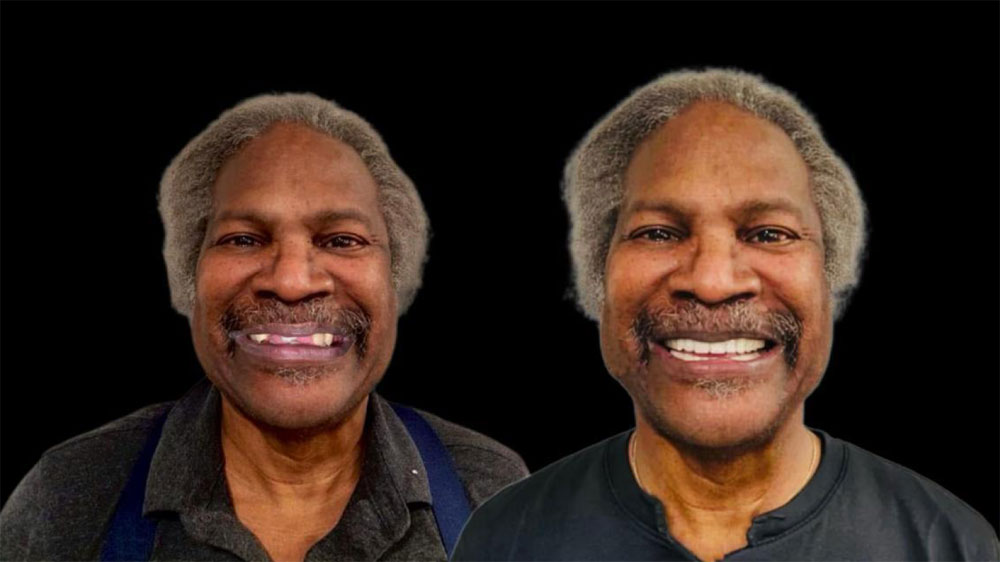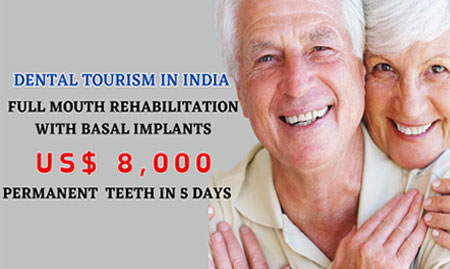
Dr. K Sharada Reddy, Author
Senior Dentist & Full Mouth Rehabilitation Expert
Smoking is one of the biggest reason for dental implant failure. Traditional Conventional implants often struggle to integrate properly in smokers due to poor blood circulation, slow healing, and an increased risk of infections. Many smokers who seek full-mouth dental implants are either denied treatment or told they need extensive bone grafting procedures.
However, the CPBCCI (Crestal Polished Bi-Cortical Conventional Implants) protocol, developed by Dr. K A Reddy, has revolutionized implant dentistry, making full-mouth rehabilitation possible for smokers with minimal risk and maximum success.
In this blog, we will explore:
- Why smokers face challenges with Conventional implants
- How Basal implants are associated with potential long-term threats to implant success.”
- The revolutionary CPBCCI protocol and how it overcomes these challenges
- Why CPBCCI Protocol is superior to traditional and Basal implants
- How international patients can benefit from this advanced dental implant technique in India

Why Conventional Implants Fail in Smokers
1. Poor Blood Circulation and Slow Healing
Smoking restricts blood flow, reducing the supply of oxygen and nutrients needed for bone and gum healing. This makes it difficult for OsseoIntegration (implant fusion with bone) to occur, leading to higher implant failure rates.
2. Increased Risk of Peri-Implantitis (Gum Infection)
Smoking creates a dry, acidic oral environment, increasing bacterial buildup around the implants. This leads to peri-implantitis, a condition where the gum and bone around the implant become inflamed, eventually causing implant failure.
3. Bone Loss and Reduced Bone Density
Nicotine exposure accelerates bone resorption, which means less bone is available for implant placement. Conventional implants rely heavily on adequate bone volume, making them unsuitable for many smokers without additional bone grafting procedures.
4. Longer Healing Time and Higher Failure Rates
Conventional implants require 3-6 months to integrate before loading the prosthetic teeth. Smokers have a 2-3 times higher risk of failure during this period. Delayed healing increases the risk of complications, making traditional implants a less reliable option.
For years, smokers have had limited options for full-mouth rehabilitation. But now, the CPBCCI protocol has changed the game.
5. Why International Patients Should Avoid Basal Implants
Lack of Long-Term Clinical Evidence
Basal implants, though marketed as a solution for patients with poor bone quality, lack substantial long-term scientific studies proving their effectiveness and durability compared to conventional or pterygoid/zygomatic implants.
Limited Global Acceptance
Most internationally accredited dental associations and implantology boards do not recognize basal implants as a mainstream or gold-standard treatment. This makes follow-up care or revisions in other countries difficult and often expensive.
Cement-Retained Design Increases Risk
Basal implants are typically cement-retained, which can lead to complications like cement residue under the gums — a major cause of peri-implantitis, bone loss, and eventual implant failure. Screw-retained prosthetics, often used in conventional systems, are much safer and more maintainable long-term.
Unsafe Osseofixation Rather Than True OsseoIntegration
Unlike conventional implants that OsseoIntegrate (form a stable, long-lasting bond with living bone), basal implants rely on osseofixation — a mechanical lock into dense basal bone. This does not allow for biological adaptation and healing, making the implant more prone to micro-movements, infection, and eventual failure over time.
Difficulty in Repair or Replacement
Should a basal implant fail or any issue with the bridges cemented on the Implants, replacing or repairing is complex procedure, where as the conventional implants that Osseo integrate with the bone become a part of the bone surrounding it and the bridges that are secured on the implants with the help of screws make it easy to remove, repair and replace the same bridge.
Lack of Long-Term Scientific Backing
There is limited peer-reviewed, long-term clinical research supporting the safety and success of basal implants — especially when compared to zygomatic, pterygoid, or bicortical conventional systems used globally.
Difficult Maintenance and Complicated Repairs
Since basal implants are not widely accepted or practiced internationally, managing complications or repairs abroad becomes nearly impossible, often forcing patients to return to the original clinic or undergo invasive corrective procedures.
How CPBCCI Protocol Overcomes These Challenges posed by basal implants and traditional conventional Implants.
The CPBCCI (Crestal Polished Bi-Cortical Conventional Implants) protocol is a revolutionary implant technique designed specifically for high-risk patients, including smokers and diabetic patients. Unlike traditional implants, CPBCCI Protocol provides immediate stability, faster healing, and a lower risk of infection.
1. Immediate Loading – No Waiting Period
With CPBCCI implants, smokers can get a full set of fixed teeth in just 3 days.
2. Bi-Cortical Engagement for Maximum Stability
CPBCCI implants are anchored in both the crestal (top) bone and basal (bottom) bone, ensuring maximum primary stability. This bypasses areas affected by smoking-related bone loss, eliminating the need for bone grafting.
3. No Bone Grafting or Sinus Lifts Required
CPBCCI implants use existing bone structure, even if density is low. Smokers who are often told they don’t have enough bone for conventional implants can receive treatment without additional surgeries.
4. Polished Crestal Design Prevents Infections
Unlike traditional rough-surfaced implants, CPBCCI implants feature a polished crestal portion, which minimizes bacterial accumulation and significantly reduces the risk of periimplantitis.
5. Faster Healing and Higher Success Rates
CPBCCI implants reduce surgical trauma, allowing for quicker recovery. Clinical studies have shown that CPBCCI implants have a success rate of over 98%, even in high-risk patients like smokers and diabetics.

Patient from USA
CPBCCI vs. Traditional Conventional Implants vs. Basal Implants
| Feature | Traditional Conventional Implants | Basal Implants | CPBCCI Implants |
|---|---|---|---|
| Healing Time | 3–6 months before loading | Immediate | Immediate |
| Risk of Infection | High in smokers | High in deep-seated infections | Low due to polished crestal surface |
| Need for Bone Grafts | Often required | Not required | Not required |
| Bone Utilization | Trabecular bone | Only basal bone | Bi-cortical fixation |
| Chewing Efficiency | Good, but delayed | Limited due to monoblock design | Excellent due to individual prosthetic customization |
| Long-Term Success | Reduced in smokers | Lacks long-term studies | Proven long-term success |
| Patient Comfort | Requires multiple surgeries | More aggressive technique | Minimally invasive |
Why International Patients Should Choose CPBCCI Implants in India
Many international patients choose LBR Dental & Implant Center in India for their full mouth dental implant treatment due to:
World-Class Expertise – Dr. K A Reddy is a pioneer in the CPBCCI protocol.
Immediate Results – Get a full set of permanent, fixed teeth in less than a week.
Affordable Treatment – Costs in India are 60-70% lower than in the US, UK, or Australia.
No Bone Grafts Needed – Even if you’ve been told you don’t have enough bone, CPBCCI makes implants possible.
Proven Success in Smokers – CPBCCI implants provide a safe, effective solution for smokers.
Conclusion: CPBCCI – The Ultimate Dental Implant Solution for Smokers
Why CPBCCI is the best choice for smokers:
- Immediate functional loading – fixed teeth in less than a week
- Superior stability with bi-cortical fixation
- No bone grafting or sinus lifts required
- Lower infection risk with a polished crestal design
- Proven long-term success in smokers and diabetics
Frequently Asked Questions (FAQs)
Yes, but traditional implants have a higher failure rate. CPBCCI protocol ensures immediate stability and faster healing, making it the best option.
The cost is 60-70% cheaper than in the US, UK, or Australia.
You can book a free consultation at LBR Dental & Implant Center by:
Emailing us
Calling our international patient coordinator
Scheduling a virtual consultation
For those seeking dental implants in India, LBR Dental & Implant Center offers world-class treatment at the best teeth implants price in India. Whether you're looking for full-mouth dental implants cost in India, affordable teeth implants in India, or periodontics in India, CPBCCI is the best choice for a permanent, confident smile! Contact LBR Dental and Implant center and Get price estimate




